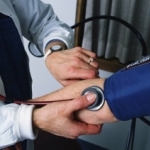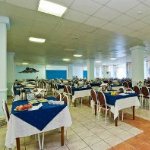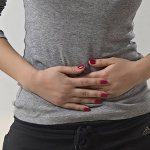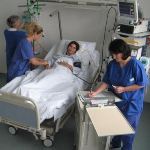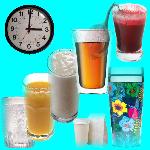 Diet number 8
Diet number 8
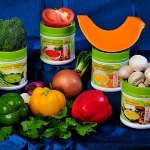
Diet number 8 is indicated for obesity with the absence of concomitant diseases of the digestive and cardiovascular systems. This is due to the fact that these diseases require a certain diet, prescribed individually.
The purpose of the 8th table : enhancing metabolism, in particular lipid metabolism and water and electrolyte balance, in order to eliminate excess body fat in the patient.
Diet number 8 is low-calorie, limited in carbohydrates and fats and high in proteins. At the same time, table salt is limited to a minimum, seasonings and extractive nitrogenous substances are excluded. The amount of liquid is moderately limited, vegetables and fruits in any form are introduced into the diet in sufficient quantities.
The composition of diet number 8 :
- proteins - 100-120 grams;
- fats - 60-70 grams;
- carbohydrates - 180-200 grams.
Energy value - from 1800 to 1850 kcal.
Foods excluded from the diet with diet number 8
- Bread made from wheat flour of the highest and 1st grade, products from rich, puff, sweet dough.
- Soups with the addition of potatoes, pasta, legumes, cereals.
- Fatty varieties of meat and fish, canned, dried and salted meat and fish products. Sausages, sausages, goose and duck meat.
- Fatty cottage cheese and cheese, sweet yoghurts, fatty fermented milk products - varenets, fermented baked milk. Glazed cheese curds, curd masses, sweet cheesecakes.
- Fried eggs.
- Rice, wheat groats, semolina, oatmeal, all legumes and any pasta.
- Fatty, spicy, spicy vegetable snacks, meat and cooking fats for cooking.
- Fatty and spicy sauces (including mayonnaise), any spices.
- Sugar, honey, jam, jam, sugar-based jams, sweets, caramel, chocolate, ice cream, pastries, jelly.
- Grapes, figs, bananas, dates, other sweet fruits, sweet juices and compotes, cocoa.
Products recommended for diet number 8
- Bread rye or rye-wheat, bran, protein-bran - from 100 to 150 grams per day.
- The first courses are served in a volume of 200-250 ml per meal. Vegetable soups on fat-free meat and fish broths, vegetable broths, boiled vegetables, low-fat meat meatballs.
- Meat products: lean beef, veal, limited - lamb and meat pork. Rabbit, turkey, chicken meat. Served boiled, sometimes fried after cooking to improve taste. The amount of meat per day - up to 150 grams.
- Low-fat varieties of fish in boiled, stewed, baked form, seafood without spices - up to 150 grams per day.
- Milk, low-fat dairy products, low-fat cottage cheese and unsweetened cheesecakes from it.
- Boiled eggs from 1 to 2 per day, omelettes with vegetables, protein omelettes.
- Dishes from cereals: buckwheat, pearl barley and barley in the form of cereals and crumbly side dishes - by reducing the amount of bread consumed.
- Vegetables - in any form, except for pickles and marinades. Raw vegetables in large quantities. Cabbage, radish and radish, cucumbers, lettuce, tomatoes, zucchini, pumpkin. Limited - potatoes, beets, carrots, green peas, salted and pickled vegetables.
- Meat snacks with vegetables, jellied meat and fish dishes, vinaigrettes and various salads without spices.
- Fresh fruits and berries are sweet and sour: Antonovka apples, red and black currants, cranberries, lingonberries, cherries, dogwoods, grapefruits, pineapples. Jams, mousses, compotes on xylitol.
- Sauces: white vegetable, tomato, red, weak mushroom. Vinegar in cold dishes.
- Tea and black coffee with xylitol or sorbitol, coffee with milk without sugar, unsweetened juices, decoction of rose hips, berries and dried fruits on xylitol.
Metabolism stabilizing diet number 8 involves the following diet: frequent meals of sufficient volume, but low calorie food. 5-6 times a day, perhaps more, so that there is no feeling of excruciating hunger. The diet should be varied, offer patients delicious meals, the intake of which is not repeated during the day.
